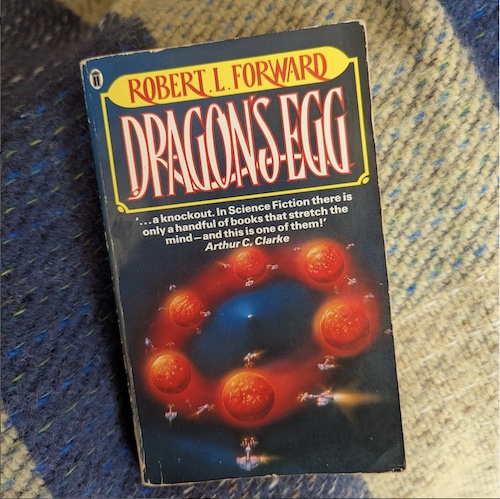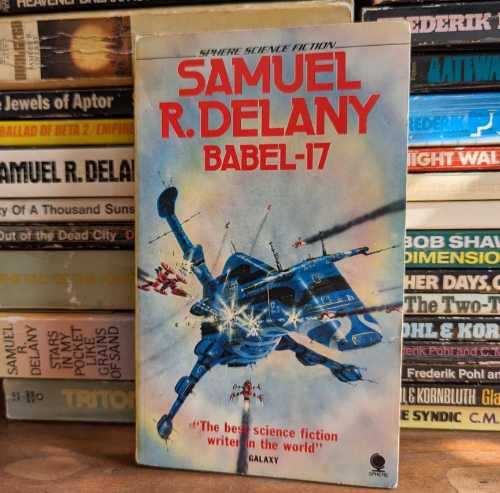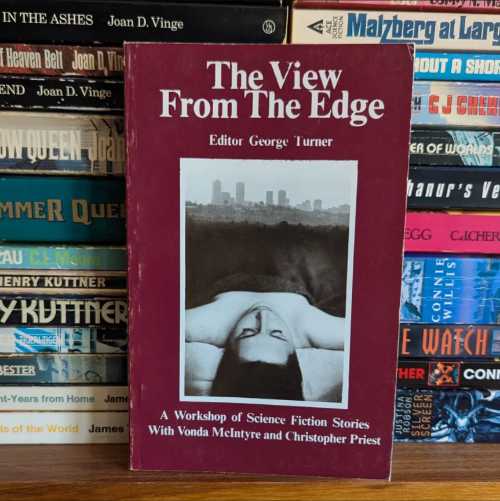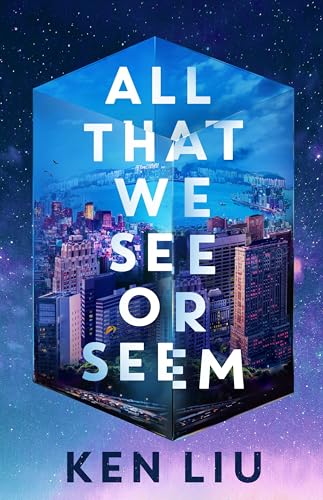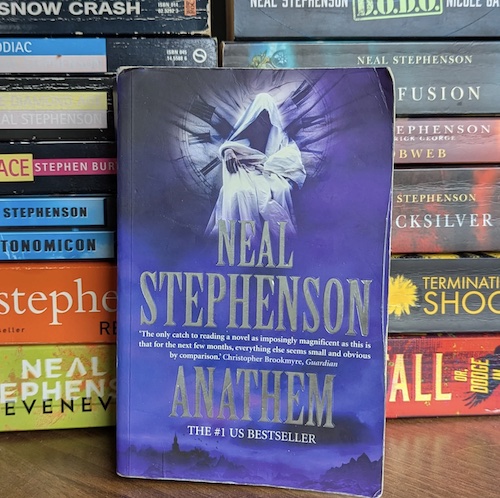Dragon’s Egg
★★★★★A neutron star remnant from a nearby supernova is heading for a flyby of the solar system. An expedition is mounted to study the star, the titular Dragon’s Egg, but discovers primitive life has evolved on its surface, living and evolving at a speed millions of times faster than human time.
This is hard SF at its finest. Forward starts strong with his deep understanding of cosmology and then escalates dramatically as he imagines life evolving from nucleonic matter existing in 67 billion gravities and a million Telsa magnetic field! The Cheela are truly strange, only millimetres thick and constrained by the field to only move East-West; their biology, culture, and society are truly alien.
Of all his inventions, I felt the time difference was the most stunning. Alternating Cheela and human chapters are time-stamped - after a brief human scene plays out, a whole epoch has passed on the star. The sense of time streaming past is palpable as the lives of the Cheela pass in just seconds of human time and you wonder how contact can ever be established.
Forward is clearly both smart and imaginative, writing gripping aliens and science like few can. For me, this made the story a page-turner; I was totally engrossed by the torturous evolutionary path the Cheela were forced down by the physics of the neutron star. But the rapid turnover of Cheela characters and the scant time spent with the humans meant that we got very little character depth. There was a smattering of objectification, clunky ‘thinking’ exposition, and awkward dialogue. His simple prose worked well for the Cheela, enhancing the alien, but his humans were emotionally one-dimensional.
That was fine for me but it might be a problem for character readers. There are a lot of parallels with Tchaikovsky’s more modern and better written Children of Time, but the extremes of physics of Forward’s setting make it unique and worth reading for its epic sense of wonder.
